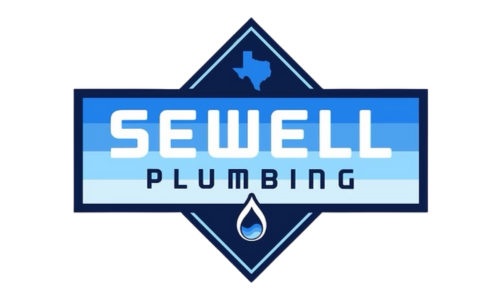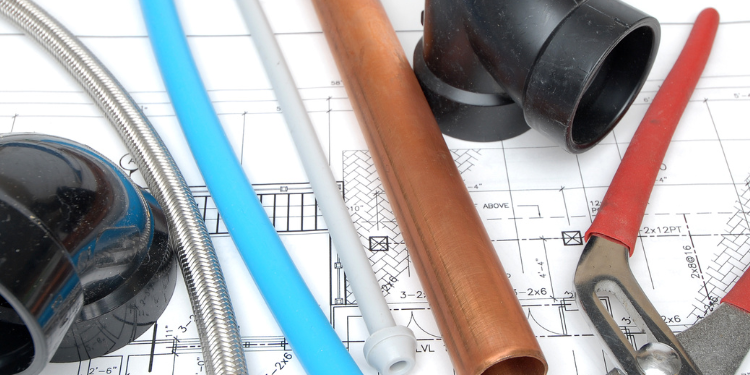Plumbing is an essential part of every home in McKinney, Allen, and Frisco, Texas. The type of plumbing threads used in various fittings and pipes plays a crucial role in ensuring the efficiency and safety of your water systems. Understanding the different types of plumbing threads and their functions can help homeowners make informed decisions, whether you’re undergoing a renovation or simply addressing a small plumbing issue. In this guide, we’ll walk you through the basics of plumbing threads, helping you gain a deeper understanding of their roles and importance in your plumbing systems.
Key Takeaway: Different plumbing threads serve specific purposes in creating secure connections between pipes and fittings. Understanding these can help you prevent leaks and maintain a well-functioning plumbing system in your home.
The Importance of Plumbing Threads in McKinney, Allen, and Frisco Homes
Understanding Thread Functionality
In plumbing systems, threads create the essential connections between pipes and fittings. Whether you’re dealing with water lines, drains, or gas pipes, threads ensure that everything stays securely connected, preventing leaks or malfunctions. For homeowners in the Frisco area, this is especially important when performing routine maintenance or during home renovations.
Thread Types in Residential Plumbing
In residential plumbing, there are several common types of threads, including National Pipe Thread (NPT), British Standard Pipe (BSP), and compression threads. Each type has its own specific uses. NPT threads are most commonly used in the United States and are tapered to create a watertight seal, while BSP threads are often used in imported fixtures. Compression threads rely on a nut and ferrule to create a seal without the need for tape or sealant.
Preventing Leaks with Proper Thread Selection
Choosing the right type of thread for your plumbing system helps prevent costly leaks and water damage. For example, using the wrong thread type or failing to apply thread sealant properly can lead to leaks in pipes behind walls or beneath flooring. In McKinney, Allen, and Frisco, where temperature fluctuations are common, having secure plumbing connections is vital to avoiding issues caused by pipe expansion or contraction.
Types of Plumbing Threads Used in Texas Homes
NPT Threads and Their Uses
NPT (National Pipe Thread) is the standard in U.S. residential plumbing. These threads are designed to be tapered, which means the diameter of the thread decreases as you screw them in. This taper allows for a tighter seal, which is essential for preventing leaks in water and gas lines. Many homes in McKinney and Frisco have NPT threads in their water supply lines, especially in copper or galvanized steel pipes.
BSP Threads: When Are They Needed?
BSP (British Standard Pipe) threads are less common in U.S. homes but can occasionally be found in imported fixtures or appliances. These threads are often used for outdoor plumbing and irrigation systems. If you’re upgrading your outdoor water features or working with imported equipment, you may encounter BSP threads. It’s important to recognize the difference between NPT and BSP threads since they are not interchangeable without special adapters.
Compression Threads for Water Fixtures
Compression threads are widely used in residential plumbing, particularly for faucets and water heaters. These threads don’t require pipe sealant or tape because they create a seal using a compression ring and nut. Homeowners in Allen often encounter compression fittings when working on bathroom or kitchen renovations.
How to Identify and Use Plumbing Threads
Visual Identification of Threads
Identifying the type of thread used in your plumbing system can often be done through visual inspection. NPT threads are usually tapered, while BSP threads tend to have a consistent diameter. Compression threads will typically have a nut and ferrule around the threaded connection. If you’re unsure, consider consulting a professional plumber in McKinney, Allen, or Frisco to avoid any mistakes.
Selecting the Right Sealants for Threads
Using the correct sealant for your plumbing threads is crucial for preventing leaks. NPT threads require a thread sealant or plumber’s tape to create a watertight connection, while compression threads typically do not. For homeowners in Frisco undergoing bathroom renovations, ensuring that each connection is properly sealed can save significant time and money in the long run.
Adapting Threads for Different Fixtures
Sometimes, you may need to adapt threads to fit different types of plumbing fixtures. This is common when replacing fixtures that use different thread standards, such as BSP fixtures in a home with NPT pipes. Using adapters and understanding thread compatibility can help you navigate these situations without compromising the integrity of your plumbing system.
Common Thread-Related Plumbing Issues
Leaks at Threaded Joints
One of the most common plumbing issues in McKinney homes is leaks at threaded joints. These leaks typically occur because the threads weren’t sealed properly, or the wrong type of thread was used. Ensuring that the correct thread type and proper sealant are used can prevent water damage and protect your home.
Cross-Threading: What It Is and How to Avoid It
Cross-threading happens when the threads on a pipe or fitting don’t align correctly. This can damage both the pipe and the fitting, leading to leaks or failed connections. To avoid cross-threading, always ensure that the threads are clean and properly aligned before tightening. This issue often arises during DIY repairs in Allen homes.
Stripped Threads: Repair or Replace?
Stripped threads occur when the threads on a pipe or fitting are worn down, making it impossible to create a secure connection. In some cases, you can repair stripped threads using a thread repair kit. However, if the damage is too extensive, the best solution is often to replace the fitting entirely. When dealing with stripped threads in your Frisco home, calling a professional plumber is often the best course of action.
Answering Common Questions
What type of thread sealant should I use for NPT threads?
For NPT threads, you should use Teflon tape or a liquid thread sealant specifically designed for plumbing applications. Both options create a watertight seal.
Can I use BSP threads in a plumbing system that has NPT pipes?
No, BSP and NPT threads are not interchangeable. You will need an adapter to connect BSP-threaded fixtures to NPT-threaded pipes.
Are compression threads secure enough for water heaters?
Yes, compression threads are widely used for water heaters and faucets. They create a reliable seal without the need for additional sealants, making them a popular choice for these applications.
The Role of Temperature in Threaded Connections
Temperature plays a significant role in the longevity and performance of plumbing threads. In areas like Frisco, where temperatures fluctuate, threads can expand and contract, leading to leaks. Choosing the right materials and thread types for your specific climate can help mitigate this risk.
Choosing the Right Plumber for Thread Repairs
When it comes to threaded plumbing repairs, choosing an experienced plumber is crucial. The professionals at Sewell Plumbing are well-versed in all types of thread repairs and installations, ensuring that your plumbing system operates efficiently.
Why Professional Help Matters for Threaded Plumbing Issues
Attempting DIY thread repairs can often lead to bigger problems down the line, especially if you’re unfamiliar with the different types of plumbing threads. Professional plumbers have the expertise to ensure that all connections are secure and leak-free. If you’re experiencing plumbing issues in McKinney, Allen, or Frisco, reach out to Sewell Plumbing for expert assistance.
Resources for Further Reading:
Plumbing
Leak
Handyman
Leak Detection







